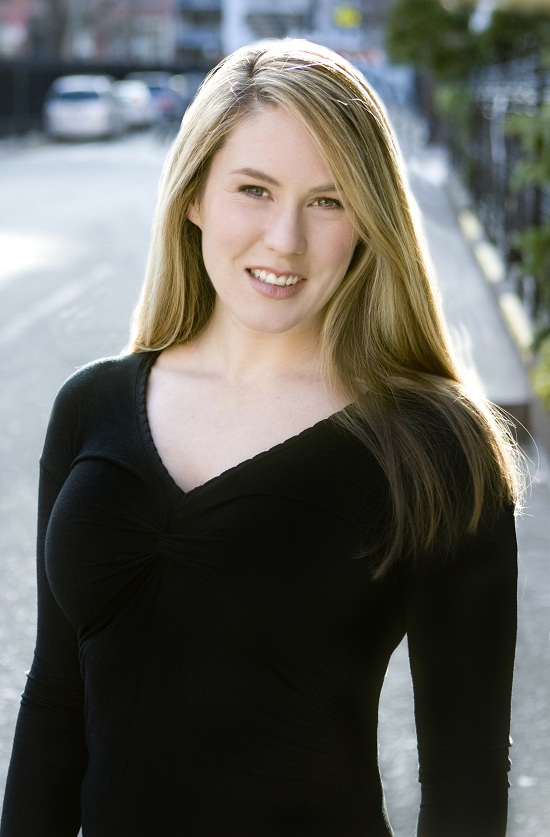I recently had an opportunity to chat with Adelaide Lancaster, co-founder of In Good Company, “a first of its kind community, business learning center, and coworking space for women entrepreneurs located in Manhattan.” When we think about entrepreneurship, we often imagine tech startups, hitting the ground running with angel funding or VC investment, then scaling to a national level until they are big enough to be bought by one of the internet giants. However, this scenario really describes only a small fraction of new businesses.
According to Lancaster, at any given time up to 98% of small company owners are very content operating as micro-businesses, where they can realize precisely the kind of lifestyle they are seeking. Helping women achieve these ends among the many options available to them has been a prime focus of In Good Company WorkPlaces, as well as the book, “The Big Enough Company,” both of which were collaborations with business partner Amy Abrams.
The two had previously worked together at a consulting company that was dedicated to assisting women looking to transition out of corporate positions into starting their own businesses. In 2007, they opened their space to provide women entrepreneurs a place to come and hang their shingle at a time when the coworking movement was still in its infancy. They currently serve approximately 300 entrepreneurs each year with a variety of workspace solutions available hourly, by the month, as well as numerous workshops, classes and networking opportunities.
In Good Company’s founders have personally benefitted from their own advice with regard to flexibility in creating a career path. Amy has recently cut back on day-to-day involvement in the company in favor of her own business pursuits, while Adelaide continues to oversee operations of their Manhattan operation from her home in St. Louis, Missouri, where she and her family moved last spring. In fact, although she did her masters work in Organizational and Counseling Psychology at Columbia University’s Teachers College, she had already moved to Philadelphia by the time they originally founded In Good Company back in 2007.
Lancaster recalls the grueling time of commuting back and forth between Philly and NYC as a key period of investment in creating the type of business that could sustain her current need to operate from a different city. With two on-site staff consistently running the day-to-day operations since the company’s inception, they’ve been able to maintain a level of continuity of services and relationships with members of the IGC community that continues to this day.
The community of women that benefits from In Good Company’s services are a diverse group with regard to industry and age, although the bulk of them are self-supporting – either the sole income source or key contributors to their family income. Since the economic downturn, the group includes more women who may not necessarily have become entrepreneurs by choice, but are nevertheless dealing with the same serious issues of professional development as well as ongoing business concerns as most female entrepreneurs.
On a number of fronts, it has made sense to keep the business small and focused. For one thing, the requirements of operating a physical space are particularly demanding, and not the most fulfilling aspect of the job for Lancaster. If IGC had pursued the strategy of operating spaces in numerous cities, real estate management would be more of a focus than she would really like. In addition, capitalizing such an operation required a significant up front investment, and spending additional time on fund-raising has also not been at the top of Lancaster’s list. Perhaps most importantly, being in a position to interact personally and build relationships with so many of the women she serves has been a great reward for Lancaster. The ability to continue to spend her time this way as well as in the thought leadership space through public speaking and consulting has been a top priority.
Overall, Lancaster has sought to find ways to bridge the perceived gap between funded businesses and micro-businesses, particularly when it comes to issues facing women entrepreneurs in both areas. Her focus has been more about detailing paths to growth in a way that expands options for women. In this regard, she has found peer modeling to be key. “The more you engage with other entrepreneurs, the more likely you are to emulate the things they are doing.” Hence the importance of a community space offering many opportunities for interaction between different women.
In addition, she encourages women to view their businesses, particularly during the first couple of years, as works in progress. “I wish entrepreneurs gave themselves the freedom, and particularly women are not always good at this – to give themselves permission to treat their businesses like a research project.” She recommends observing the course of your progress and suspending all judgement until a significant period of time has passed – one, even two years. Then, you’ll be in a position to make an informed decision about what to do next.
Approaching the prospect of creating a business with this kind of flexibility and resilience makes for the possibility of maximum options and more than a few surprises. Sounds like the makings of a great adventure to me…





